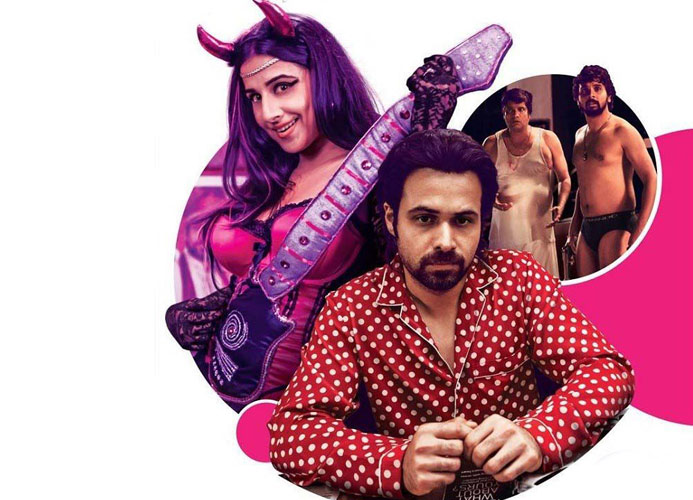(Reuters) - Rajkumar Gupta's first two films - thrillers "Aamir" and "No One Killed Jessica" - made critics stand up and take notice. For his third film, Gupta decided to switch genres and make a comedy. "Ghanchakkar", starring Vidya Balan and Emraan Hashmi, is a "quirky" comedy involving a bank heist, memory loss and a loud Punjabi housewife. Gupta spoke to Reuters about the film, which releases this weekend, and his reasons for making it. What made you want to make "Ghanchakkar"? A: UTV wanted to introduce me to a new writer, Parvez Shaikh, and hear the story he had written. When I heard it, I thought it was very interesting and in a quirky space. At that point I wanted to explore a genre I had not done and the project looked like something that would interest me and it turned out to be a comic thriller. When we started writing (the script), I knew it would turn out to be the way I wanted it to be and I knew I wanted to make the film. And what did you want it to be? A: I wanted it to be in a quirky, funny, thriller. It is not a slapstick comedy or below the belt. It is not comedy that relies on disability or anything like that. It is very situational humour and that is what I loved about the script.

To combine a thriller with comedy must be tough. How did you manage? It happened naturally with us. You are not conscious that you are writing a quirky comedy or a thriller. You go by the characters and chart their journey. You see where your characters take you. Q: Can you talk about your casting choices? Neither Emraan nor Vidya have done a lot of comedy. A: Yes, that was one of the reasons for casting them in the movie. When I was thinking about actors, Emraan came to mind. There is a certain sense of mystery to him. He's a very enigmatic person. You cannot say what he will say or which way he will go. This character (in the film) also has a certain mystery to him - at one point in the film you don't know if he is telling the truth or not. As far as Vidya is concerned, I have worked with her and she is one of the finest actors we have. She has a certain image and this character would give her an opportunity to play someone with grey shades. Q: You spoke earlier about comedies that rely on slapstick or below the belt humour. What do you think of them? A: It is not that I don't enjoy that kind of humour, but my take on it is that it should be funny rather than being slapstick or over-the-top. If someone makes films like this, and those films are working, they have their reasons for making them. Hopefully, audiences are receptive to this kind of humour too.
Q: Do you worry that audiences who are brought up on slapstick humour will accept black humour in your film? A: I think this is very relatable humour. Also, I think audiences have grown and this is the best time to do something like this. And when I make the film, I don't think that I should add certain elements just for commercial considerations. I am not being judgemental about people making any kind of films. Of course there are commercial considerations and you want to make sure that films makes money. The thing is that no one knows what will work. The best you can do is to partner with people who share your vision so that everyone knows that you have done your best Q: Is having big stars in your film another way to make sure it is economically viable?A: Of course, stars are very important, but it is not just that. If that was the case you would show a three-hour documentary on their lives and get away with it. Stars are important at the box office but combined with good content.Q: When you have a certain level of comfort with a star, like with Vidya, is there a temptation to cast them in every film? A: Not for me. But if you write something, and you want to pitch it, I might go to Vidya and say this is what I have written. You want to approach people who you are comfortable with and who knows where you are coming from. They understand what you are thinking and what your approach is. There is no temptation to write roles, but there is temptation to narrate roles to people you are comfortable with.